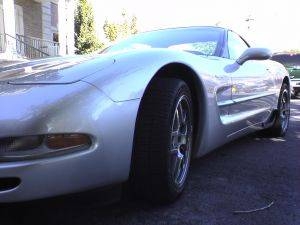
When a car is impounded, it is taken from the driver and placed in the temporary custody of an impound lot. Once a court order has been followed through with and a car is impounded and repossessed by the police or DMV, the car will remain in the impound lot or returned to the source who filed the court order. Cars cost money to be impounded. The fines and fees will later be collected from the person who had prior possession of the vehicle.
Vehicles are impounded once they have been located by a skip tracer, the police department or the Department of Motor Vehicles. Some cars are impounded voluntarily by the owner, but usually the car has to be repossessed by a wrecking service or a tow truck to assure that the vehicle is removed promptly and safely. A court order must first be obtained before a car can be repossessed or taken from a property. Once a car has been taken from the owner, it is then sent to a impound lot that is gated, locked and under close security. This is to prevent theft and to prevent interference from the public if the car is part of a crime scene. Cars can be repossessed because there was a crime committed, the car loan has fallen behind on payments, the car is uninsured, or the car is part of property seized by the government to pay back taxes or other fines that remain outstanding.
Once a car has an order to be impounded the repossession should be completed within 24 hours. A skip tracer may be hired to locate a vehicle and the whereabouts, such as where it is parked and what address it is located at. Once a car is repossessed due to a court order, the car is then in custody of the state or local authorities and can not be returned the owner until an agreement has been reached by all parties involved. Most cars are impounded indefinitely or until sent to a police or government auction in which to be sold to the highest bidder, at that time the funds will be used to pay off the balance of any outstanding liens or debts against the car.
When a car is impounded, it protects the banks, government, financial institutions and law enforcement by having the car returned so it can be put up for auction or sale to recoup costs. Other times, having the car in possession of a crime scene unit will help to assure the case receives all of the evidence from the accident. Many times the loan that was taken out on the car has been left unpaid for months at a time, causing an arrears in the accounts receivable. When a car is impounded, the vehicle owner is still held responsible to pay off the balance of the loan. If the car is sold at auction, the difference of the auction price and the amount owed can be forgiven. However, fees, handling charges for transporting the vehicle, title and insurance fees are still required to be paid by the owner.
When a car is repossessed and then impounded, it can't always be purchased back. It is at the discretion of the person or business who filed for the repossession to make that determination. For cars that are involved in accidents or crime scenes, it could be months before the car is even released from police custody and sold at an auction. If a large sum of money is owed on the vehicle due to back payments or if the car was repossessed when it was uninsured, money will have to be paid in full as well as all late fees and handling charges before the car can be returned or released.
Having a car impounded is a not only a serious issue, it is also a legal matter--not something that can always be easily rectified. For a car being repossessed and impounded by a bank, making sure that the payments are always on time or a binding payment arrangement is in place will assure the car will not be sent to the impound lot. For speeding, reckless driving and unpaid tickets, taking care of paying off money owed to the state as well as avoiding breaking laws will prevent the police from impounding the car.